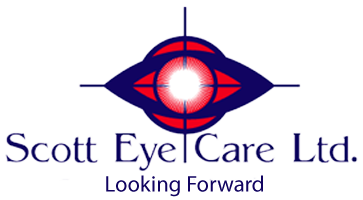 Age-related macular degeneration (AMD), is a common eye condition that primarily affects older adults. It occurs when the macula, the small central part of the retina responsible for clear, sharp vision, begins to deteriorate over time. As AMD progresses, it can lead to a gradual loss of central vision.
Age-related macular degeneration (AMD), is a common eye condition that primarily affects older adults. It occurs when the macula, the small central part of the retina responsible for clear, sharp vision, begins to deteriorate over time. As AMD progresses, it can lead to a gradual loss of central vision.
While the physical effects of AMD are well-known, it’s also important to understand the potential impact of this condition on mental health. Below, we explore how AMD can trigger depression and the role that a low vision optometrist can play in helping patients manage their symptoms.
How Can AMD Trigger Depression?
AMD can trigger depression in a number of ways. First and foremost, the loss of vision associated with AMD can be extremely distressing. It can hinder an individual's ability to perform routine daily tasks, such as driving, reading, and even socializing.
These limitations can lead to feelings of isolation and helplessness, which can in turn trigger depression. In fact, individuals with advanced AMD in both eyes are twice as likely to experience depression than adults with healthy sight, according to a study funded by the National Institutes of Health.
Fortunately, there is hope for patients with AMD who struggle with vision-loss-related depression. By addressing the psychological and physiological components in a multidisciplinary approach, many AMD patients are able to lead fulfilling and meaningful lives without symptoms of depression.
What a Low Vision Optometrist Can Do To Help
A low vision optometrist specializes in helping individuals with visual impairments maximize their remaining vision. They work with patients to identify strategies for performing everyday tasks, such as using adaptive technology or modifying the environment to reduce visual clutter.
One option of a low vision aid is a magnifying glass or handheld magnifier, which can help with reading small print. Another device is a closed-circuit television (CCTV) system, which uses a camera to magnify and display images on a screen.
For patients with central vision loss, bioptic telescopes or miniature telescopes can improve visual acuity at a distance. The right lighting is also essential, and specialized lamps and bulbs can enhance the brightness and contrast of the visual field. Computer software and mobile apps can increase font sizes, change color contrasts, or read text aloud. With the help of these low vision aids and devices, patients with AMD can maintain independence in daily activities like reading, using a computer, and watching television.
Low vision optometrists can also provide referrals to other healthcare professionals, such as occupational therapists or mental health professionals, who can provide additional support.
Your Local Low Vision Optometrist in Oswego
While AMD can be a difficult and challenging condition to manage, it’s important for individuals with this condition to understand that they are not alone. Seeking the assistance of a low vision optometrist and other healthcare professionals can help them develop strategies for managing their symptoms and maintaining a high quality of life.
To schedule your low vision consultation, contact Low Vision of Fox Valley today.
Our practice serves patients from Oswego, Naperville, Aurora, and Chicago, Illinois and surrounding communities.

*Saturday hours bi-monthly, please check with office to confirm we are open.